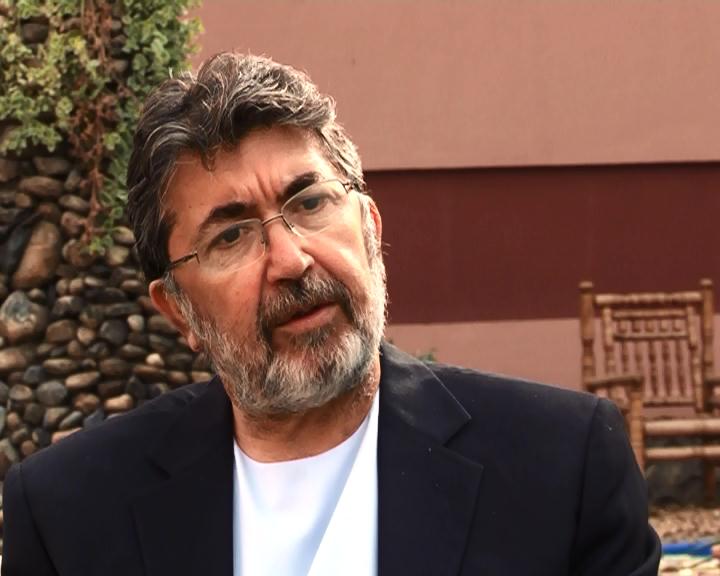Latest News
Negligence of Presidency, Executive Office led to fall of Kunduz

The findings of Kunduz fact-finding commission reveal that circulation of information among senior government officials and delay in action led Taliban to rule Kunduz.
A member of the fact-finding commission of Kunduz in an interview with Ariananews says that the presidency and executive office neglect caused the collapse of Kunduz province.
Muhammad Ayoub Rafiqi, member of Kunduz fact-finding commission declares that the foundation stones of local offices in Kunduz were laid based on power division and political intervention of government leaders not on meritocracy.
“Most of the security officials in local institutions are appointed by nepotism that is one of the main reason of Kunduz fall,” said Muhammad Ayoub Rafiqi, member of Kunduz fact-finding commission.
Rafiqi noted that during the clashes, the armed Taliban seized about 40 armored vehicles, thousands of weapons and documents of National Directorate Security (NDS).
The fact-finding commission of Kunduz promised to completely share its 189th page findings with people and media outlets on Saturday, 21 November.
Hundreds of lightly armed Taliban riding on motorbikes seized Kunduz city, capital of Kunduz Province, Afghanistan’s fifth-largest city and home to about 300,000 people on September 28. Their capture marked the fall of the first major Afghan city to the insurgents in 14 years.
The fall of Kunduz shows that without the participation of coalition forces in combat operations, the ANSF are spread too thin throughout the country to adequately address all of the pressing security vulnerabilities.
The city of Kunduz is not only of symbolic but also of strategic importance. It serves as a gateway to northern Afghanistan as it sits on the primary east-west road connecting the north of the country as well as the main north-south road connecting Kabul with neighboring Tajikistan in Central Asia.
It is not inevitable that Afghanistan will collapse totally into the hands of the Taliban. One certainty, however, is that civilians will be the first victims of further instability and violence.

Latest News
Girls’ education is a ‘vital issue’ for Afghanistan: Karzai

Former president Hamid Karzai said in a meeting with Iran’s ambassador and special representative, Hassan Kazemi Qomi, that education of girls was a “vital issue” for Afghanistan.
Karzai said he appreciated Iran’s cooperation and its standing with the Afghan people, especially Iran’s contributions to education in Afghanistan.
During the meeting, Karzai said peace and stability in the region are in the interest of all regional countries.
Latest News
Uzbekistan’s humanitarian aid arrives in Balkh

A shipment of humanitarian aid from Uzbekistan was handed over on Thursday to the local officials of Balkh province in the trade port of Hairatan.
Local authorities said the aid, which includes flour, oil, wheat, sugar and meat, has been handed over by Uzbekistan’s Surkhandarya governor to the governor of Balkh.
The governor of Surkhandarya stated the purpose of sending this aid was to support the people of Afghanistan and stressed the need for the development of good relations between the two countries.
Latest News
Afghanistan’s problems caused more damage to Pakistan than 3 wars with India: Durrani

Islamabad’s special envoy for Afghanistan Asif Durrani said on Wednesday that Pakistan has suffered more due to Afghanistan’s internal situation than Pakistan has suffered in three wars with India in terms of blood spilt and finances drained.
Durrani said at a one-day International Conference titled “Pakistan in the Emerging Geopolitical Landscape”, which was organized by the Institute of Strategic Studies Islamabad (ISSI) and the German Friedrich Ebert Stiftung (FES), that over 80,000 Pakistanis died in the two decades of the War on Terror and that his country was still counting its dead and injured.
“After the withdrawal of NATO forces, it was hoped that peace in Afghanistan would bring peace to the region. However, such expectations were short-lived,” he said.
He also stated that attacks by the Tehreek-e-Taliban Pakistan (TTP) militant group on Pakistan’s border areas increased by 65 percent, while suicide attacks increased by 500 percent.
“The TTP’s enhanced attacks on Pakistan while using Afghan soil have been a serious concern for Pakistan. Another worrying aspect is the participation of Afghan nationals in these attacks,” he said.
Durrani also said Pakistan had suffered geopolitically since the Soviet Union invaded the neighboring country.
“The post-9/11 world order has negatively impacted Pakistan. Apart from losing 80,000 citizens’ lives, including 8,000 law enforcement agency personnel, the country’s economic opportunity cost is estimated at $150 billion,” Durrani said.
Talking about the future outlook for Pakistan in the regional context, Durrani said that while “our eastern neighbor is likely to continue with its anti-Pakistan pursuits, the western border poses an avoidable irritant in the short to medium term.”
However, he said Pakistan can overcome its difficulties with Afghanistan, including the TTP challenge.
-

 Latest News4 days ago
Latest News4 days agoPakistan’s frontiers minister stresses ‘dignified’ return of Afghan refugees
-

 Regional3 days ago
Regional3 days agoIranian president lands in Pakistan for three-day visit to mend ties
-

 Climate Change4 days ago
Climate Change4 days agoMassive river flooding expected in China, threatening millions
-

 Latest News2 days ago
Latest News2 days agoRashid Khan named AWCC’s brand ambassador
-

 Latest News5 days ago
Latest News5 days agoChinese keen to invest in Panjshir-Kabul water conduit project
-

 World4 days ago
World4 days agoTwo Japan navy helicopters crash, one body found, 7 missing
-

 Sport3 days ago
Sport3 days agoKolkata beat Bengaluru by one run in IPL as Kohli fumes at dismissal
-

 Sport3 days ago
Sport3 days agoACL: Aino Mina 3-0 Istiqlal Kabul; Attack Energy 3-0 Khadim

![KUNDOZ_19_11_2015_PASHTO_SOT.mpg_snapshot_00.27_[2015.11.19_17.44.50]](http://ariananews.af/wp-content/uploads/2015/11/KUNDOZ_19_11_2015_PASHTO_SOT.mpg_snapshot_00.27_2015.11.19_17.44.50-300x240.jpg)















